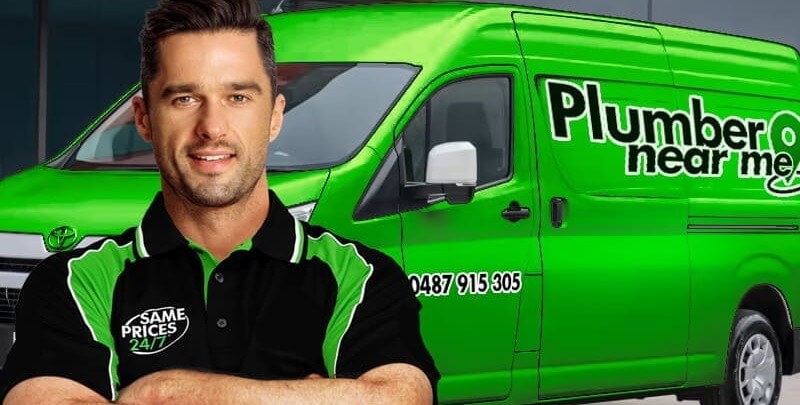
Thermann Hot Water System Troubleshooting Guide
Hot water system issues can be a consistent nuisance to Australian homeowners. Without warm water, completing basic tasks such as washing dishes or enjoying a soothing shower becomes majorly inconvenient.
This Thermann hot water system troubleshooting guide will help you learn about some common hot water system issues and ways to address them. But before anything else, let us first understand how a hot water system works as well as its types.
How Does a Hot Water System Work?
A hot water system is a crucial component of every household, ensuring a consistent supply of warm water for a variety of daily needs such as bathing, cooking, and cleaning.
Although hot water systems can use different energy sources, their primary function remains the same: to efficiently heat water for domestic use.
The general mechanism of hot water systems is the process of heating water and maintaining a desired temperature, making it readily available when needed. Here’s an overview of how hot water systems accomplish this task:
Water Heating Process
Regardless of the energy source, whether it’s electricity, gas, solar, or a heat pump, hot water systems have a heating mechanism that transfers heat energy to the water. This heating process can either occur within a storage tank, or in the case of continuous flow systems, as the water travels through a heat exchanger.
The water heating process essentially depends on the energy source and the method of heat transfer. In some cases, a heating element or burner is placed directly in contact with the water, while in other cases, a heat exchanger transfers the warmth from solar panels or the surrounding air to heat the water indirectly.
Temperature Regulation
Thermostats play a crucial role in maintaining the desired water temperature within a hot water system. The thermostat constantly monitors the water temperature and activates or deactivates the heating mechanism based on the selected temperature setting.
By controlling the heat source, the thermostat ensures the water remains at a steady and desirable temperature.
Water Circulation
Hot water systems also have an in-built circulation mechanism that ensures heated water is readily available when needed. In storage systems, cold water enters the system and gradually pushes the warmer water to the top of the tank. This allows the hottest water to exit the system first, providing an immediate supply of warm water when a tap is turned on.
In continuous flow systems, the circulation concept is slightly different, with cold water passing through a heat exchanger and getting heated instantaneously as it flows through the system.
By focusing on these three key elements − the heating process, temperature regulation, and water circulation − hot water systems consistently provide a dependable source of warm water for everyday use in households.
Regardless of the type or energy source, understanding the general mechanisms of hot water systems can help you appreciate their essential role in modern homes.
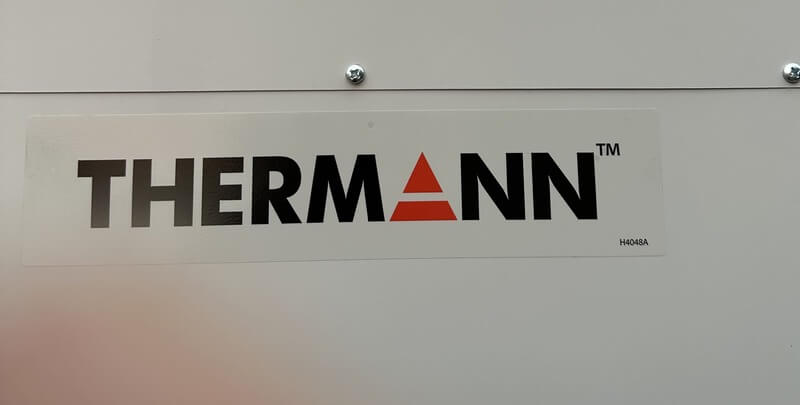
Types of Hot Water Systems
Thermann offers a range of hot water systems, including electric storage, continuous flow gas, heat pumps, and solar models. Each system type has its unique features and improvement areas. It’s crucial to first determine which system you have to identify the problems and find an effective solution.
Here are the four basic types of hot water systems you should know:
- Electric hot water systems: These systems rely on electric heating elements to warm the water in a storage tank. Electric hot water systems are simple in design and easy to maintain, but they can face issues such as malfunctioning heating elements and thermostat problems.
- Continuous flow gas systems: In a continuous flow system, the water is heated as it passes through a gas burner, which means no storage tank is needed. This type of system has lower energy costs compared to electric systems, but it can experience issues with the gas supply and ignition of the burner.
- (and 4): Heat pumps and solar systems: Heat pumps and solar hot water systems are energy-efficient options that take advantage of renewable energy sources to warm the water. However, heat pumps might be affected by air intake obstructions, while solar systems need appropriate sunlight conditions for maximum efficiency.
What is a Thermann Hot Water System?
The Australian-manufactured Thermann Electric Storage hot water systems function by heating water within an insulated tank using an electric element, operating quite similarly to a large kettle.
Their quick and straightforward installation process, coupled with their availability in a wide variety of sizes, makes them a highly affordable solution for your immediate hot water needs.
- Australian-made tanks: These systems come with the advantage of Australian-made tanks, which are crafted to meet the highest quality standards. Plus, their electric footprint is identical, simplifying the changeover process considerably.
- Dual-handed water: One of the notable features of these systems is their dual-handed water connections, which bring enhanced flexibility to your hot water system setup. They are produced using state-of-the-art machinery, ensuring the highest level of precision and robustness.
- Options for hard water elements: For those living in areas with hard water, there’s no need to worry. These systems also have options for hard water elements, offering a comprehensive solution to your hot water requirements.
Common Causes of Thermann HWS Issues
Thermann hot water systems, like any mechanical device, can face issues due to a variety of reasons. Some of the common causes include:
- Faulty thermostat: The thermostat controls the temperature of the water in the tank. If the thermostat is malfunctioning or set at the wrong temperature, it could cause issues ranging from no hot water to excessively hot water.
- Heating element failure: In electric hot water systems, an issue with the heating element can lead to insufficient hot water. This could be due to a broken element or a build up of minerals obstructing the element’s performance.
- Gas supply issues: In gas-powered hot water systems, problems with the gas supply can result in inadequate hot water. These problems can range from a poorly adjusted gas valve to blockages in the gas line.
- Pipe or tank leaks: Leaks in your hot water system could lead to a loss of hot water. Check for any signs of water around the base of your hot water tank or along the piping.
- Defective dip tube: The dip tube sends cold water to the bottom of the tank for heating. If the tube is broken or cracked, cold water may mix with the hot water at the top of the tank, resulting in lukewarm or cold water from your taps.
- Excessive sediment build up: Over time, minerals in the water can build up at the bottom of the tank, forming sediment. This sediment can cause a variety of problems, including reducing the amount of hot water the tank can hold and causing strange noises.
- Incorrect system sizing: If your hot water system is too small for your needs, then it may struggle to produce enough hot water, particularly during peak usage times.
- Wear and tear over time: Like all mechanical systems, hot water systems will naturally deteriorate over time and require maintenance or replacement of parts. Regular servicing can help to identify and address these issues early.
Understanding these common issues can help you identify when something is amiss with your Thermann hot water system and when it’s time to call in a professional for repairs or maintenance.
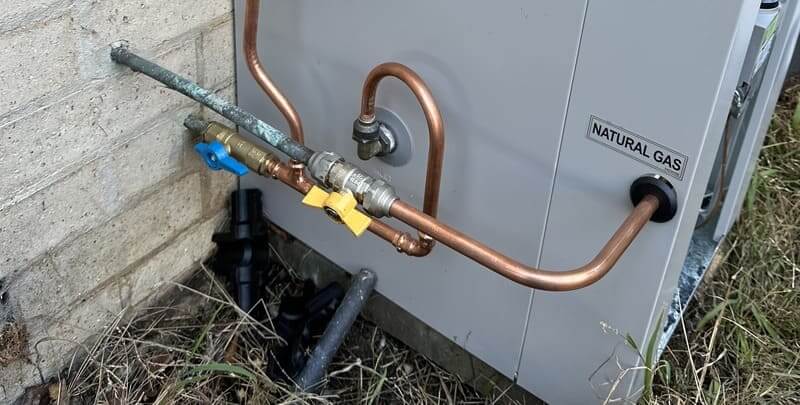
How to Cope with Common Problems
Now that you know about the different types of hot water systems, let’s delve into some familiar issues users may face and possible solutions.
No Hot Water
Navigating a total lack of hot water, regardless of the type of system you have, can be quite straightforward if you know where to look.
- Electric hot water systems: Check if circuit breakers or fuses have tripped. If they continue to trip, there may be a build-up of foreign matter in the tank or damaged wiring.
- Continuous flow gas systems: Make sure the gas supply valve is turned on and confirm there is no blockage in the gas burner.
- Solar systems: Confirm if solar panels are clean and adequately aligned to receive adequate sunlight.
- Heat pumps: Ensure that there is no obstruction in the air intake and that ambient air temperature is sufficient for the system to operate.
Insufficient Hot Water
If your hot water system is working but not providing enough hot water, it might be due to these issues:
- Electric storage: Check if the thermostat setting matches the desired water temperature. If the water temperature is lower than the setting, the heating element might need to be replaced.
- Continuous flow and gas hot water systems: Verify if the gas pressure is adequate and there are no blockages in the gas supply.
Water Temperature Fluctuations
Experiencing inconsistent water temperature in your continuous or electric hot water system can be quite frustrating. Here’s what you need to do:
- Electric hot water systems: Check for loose connections between the thermostat and the heating element. The thermostat may also need replacement due to a malfunction.
- Continuous flow systems: Inspect the water flow in taps or mixers and ensure the water flow rate is sufficient.
Error Codes in Thermann Hot Water Systems
Thermann hot water systems may display error codes on their control panels to signify specific issues.
For starters, here are some error codes that you might encounter:
- Thermann Error Code 11: Ignition failure.
- Thermann Error Code 111: Gas burner fails to ignite.
- Thermann Error Code 121: Loss of combustion.
- Thermann Error Code 141: Residual flame safety device.
- Thermann Error Code 311, 321, 341: Thermistor wire breakage.
- Thermann Error Code 510, 511: Gas valve failure.
- Thermann Error Code 611: Combustion fan failure.
- Thermann Error Code 651: Water flow control valve failure.
- Thermann Error Code 700, 731: PCB failure.
- Thermann Error Code 721: False flame detection.
- Thermann Error Code 735: Cascade communication failure.
- Thermann Error Code 740, 750, 760: Between remote controls and PCB.
- Thermann Error Code 90, 901, 903, 908: Abnormal combustion.
- Thermann Error Code 90, 902: Abnormal combustion, low gas supply pressure.
- Thermann Error Code 99: Abnormal combustion.
Consult your user manual to understand what each code represents, and then contact a professional plumber to inspect and repair the problem.
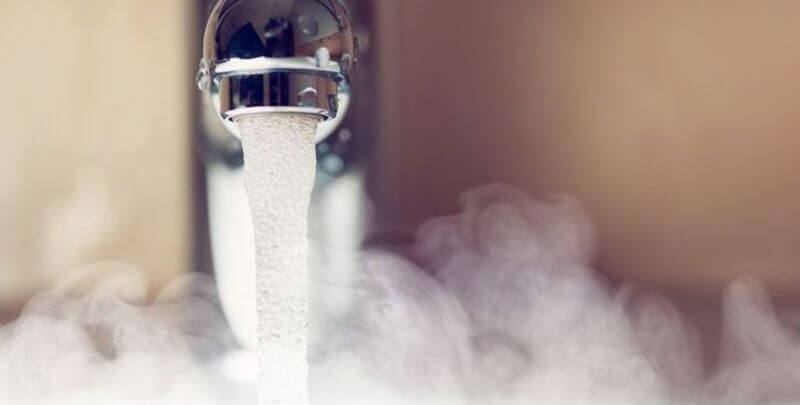
Tips for Maintaining Your Thermann HWS
Keeping your Thermann Hot Water System in top condition is key to enjoying a continuous supply of warm water in your home.
Here are some handy tips to help you maintain your system:
- Regular inspections: Regularly check your hot water system for any visible damages, leaks, or signs of wear and tear. This can help identify minor issues before they become significant problems.
- Annual servicing: Have your system serviced annually by a professional to ensure its components are working correctly. This can include tasks such as checking for corrosion, testing safety devices, and inspecting for gas or water leaks.
- Keep surroundings clear: Keep the area around your system clear of any debris or flammable materials. This not only ensures good ventilation but also reduces any fire risk.
- Monitor pressure relief valve: The pressure relief valve is an essential safety component of your system. Ensure it’s functioning correctly by manually operating it at least every six months.
- Adjust temperature settings: Consider lowering the temperature settings if you’re consistently running out of hot water. Remember, higher temperatures not only consume more energy but can also lead to more wear and tear on your system.
- Insulate pipes: Insulating hot water pipes can reduce heat loss, save energy, and increase the water temperature delivered to the outlet.
- Replace worn-out components: If you notice any components showing signs of wear or damage, don’t hesitate to replace them. This simple measure helps protect the overall integrity of your system and can prevent unexpected breakdowns.
- Avoid DIY repairs: Hot water systems are complex devices that should only be repaired by qualified professionals. Resist the temptation to do it yourself, as this could cause further damage or pose a safety risk.
Remember, maintaining your hot water system will not only extend its lifespan but also improve its efficiency and performance, keeping your home with a continuous flow, hot water all year round.
Ensuring a Continuous Supply of Hot Water
Proper maintenance and timely repair of your Thermann hot water system are crucial for a reliable and continuous flow of your hot water supply. Have your system checked by a professional plumber annually to ensure all components are functioning optimally.
This service includes inspecting the storage tank for corrosion or build-up, examining the heating element, and checking the gas burner and ventilation for gas systems.
A well-maintained hot water system will help extend its lifespan, maintain energy efficiency and lower electricity or gas consumption. By staying proactive with system maintenance, you can rest assured that hot water will remain readily available when needed.
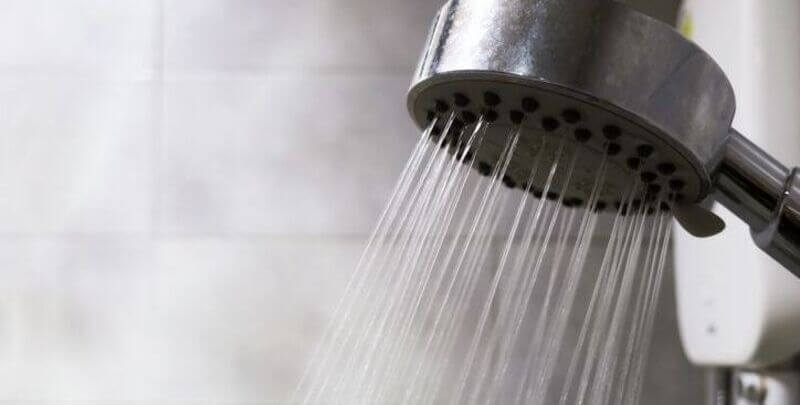
When to Call a Professional Plumber
While basic troubleshooting can help you identify issues with your hot water system especially with your water heater, it’s essential to call a professional plumber when it comes time for repairs or replacements.
Trying to fix complex issues without proper knowledge and experience can increase the risk of damage and may void the system’s warranty.
By employing regular maintenance practices and proactively tackling any concerns, you not only prolong the lifespan of your system but also guarantee that your household will have a dependable hot water supply.
Please note: This information is provided for advice purposes only. Regulations differ from state to state, so please consult your local authorities or an industry professional before proceeding with any work. See our Terms & Conditions here.